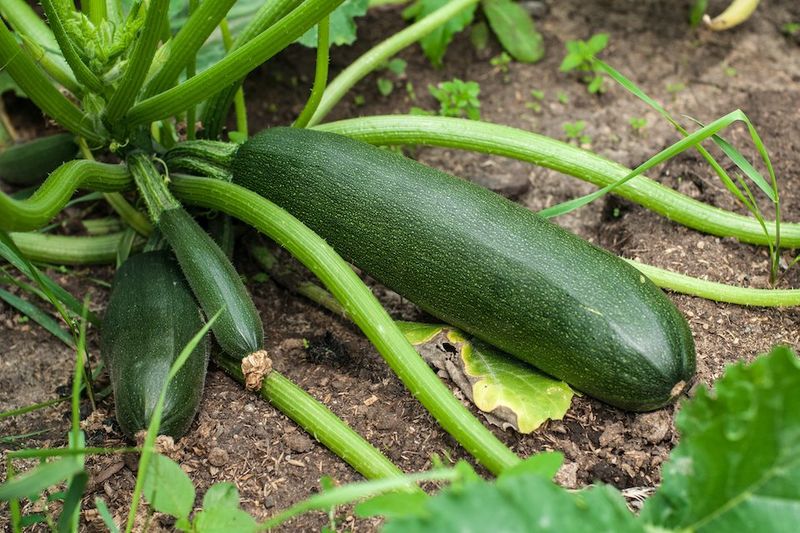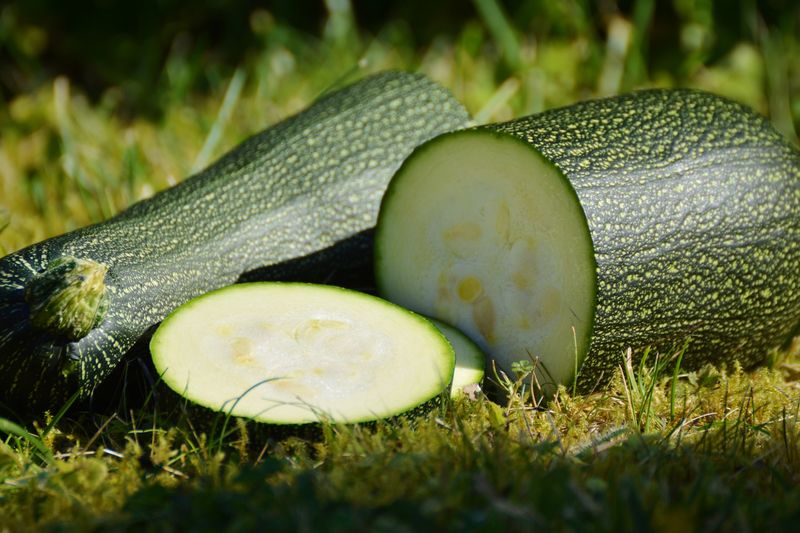Genetically modified organisms (GMOs) have become a prevalent part of our food system. Many health-conscious consumers aim to avoid GMOs, particularly due to concerns over long-term health and environmental effects. This guide provides a detailed list of 15 foods that are commonly associated with GMOs, helping you make informed choices during your next grocery shopping trip.
Corn

Corn is a staple in many diets, but most conventional corn in the U.S. is genetically modified. This includes not just the corn kernels we eat but also corn-based products like corn syrup and cornstarch.
Consumers looking to avoid GMOs should seek out organic or non-GMO labeled corn. Did you know? Corn is used in a wide variety of products, including some unexpected ones like adhesives and fireworks.
The prevalence of GMO corn makes it a significant challenge for those aiming to reduce GMO intake, but careful label reading can help.
Soybeans

Soybeans are another common GMO crop, widely used in various food products. From tofu to soy milk, the presence of GM soybeans is extensive.
For those avoiding GMOs, opting for organic or explicitly labeled non-GMO soy products is essential. Interestingly, soybeans have been cultivated for over 5,000 years, originating in East Asia.
The versatility of soybeans means they’re found in many processed foods, making them a tricky ingredient to dodge without careful label scrutiny.
Canola Oil

Canola oil, derived from rapeseed, is predominantly genetically modified. It is a common cooking oil found in many households.
Switching to alternative oils like olive or avocado can help avoid GMOs. Fun fact: Canola was developed by Canadian scientists in the 1970s, and its name derives from “Canadian oil, low acid.”
With its presence in dressings, sauces, and more, canola oil is a ubiquitous ingredient that requires mindful shopping to avoid.
Sugar Beets

Sugar beets are often genetically modified and are a major source of sugar. If you’re steering clear of GMOs, look for products made with cane sugar instead.
Despite their name, sugar beets are not related to red beets but are grown specifically for sugar production.
In the U.S., the majority of sugar beet crops are genetically modified, making it a significant concern for those avoiding GMOs.
Papaya

Hawaiian papayas are often genetically modified to resist the ringspot virus, which once threatened the fruit’s production.
For a non-GMO option, choose papayas from non-affected regions or look for organic labels. Papayas are not only delicious but also rich in vitamin C and digestive enzymes.
This makes them a healthy choice, provided they are sourced from non-GMO crops.
Cottonseed Oil

Cottonseed oil, commonly used in snacks and processed foods, is largely derived from GMO cotton plants.
Consumers should look for alternatives like sunflower or safflower oil to avoid GMOs. Cotton has a long history, being cultivated for over 7,000 years in regions like India and Africa.
With its extensive use in food production, vigilance is necessary to sidestep GMO cottonseed oil.
Zucchini

Certain varieties of zucchini have been genetically modified to resist viruses, making them a concern for GMO-conscious shoppers.
Opting for organic zucchini ensures you’re avoiding GMOs while enjoying this versatile vegetable. Zucchini is not only delicious but also low in calories and high in nutrients.
Its adaptability in recipes makes it a popular choice for health-focused individuals.
Summer Squash

Like zucchini, some summer squash varieties are genetically engineered to thwart viruses.
Choosing organic varieties or those with non-GMO labels can help you avoid genetically modified squash. Summer squash is known for its bright colors and is a staple in many seasonal dishes.
It’s a nutritious addition to meals, provided it’s sourced thoughtfully.
Aspartame

Aspartame, an artificial sweetener, is often produced using genetically modified bacteria.
For those eschewing GMOs, natural sweeteners like stevia or honey make better alternatives. Did you know? Aspartame was discovered accidentally in 1965 by a chemist trying to develop an ulcer drug.
Despite its low-calorie appeal, aspartame remains controversial, particularly among those concerned about GMOs.
Alfalfa

Alfalfa is used primarily as animal feed and is often genetically modified.
For non-GMO choices, seek out organic meats or those labeled as non-GMO fed. Alfalfa has been a part of agriculture for thousands of years, known for its nutritional benefits to livestock.
Its genetic modification is contentious, particularly for organic farmers and GMO opponents.
Dairy Products

Many dairy cows are fed genetically modified corn and soy, which can be passed into milk and dairy products.
Opting for organic dairy ensures that the cows have been fed non-GMO diets. The dairy industry has seen significant changes over the decades, with organic practices gaining popularity.
Choosing non-GMO dairy supports not just health but also ethical farming practices.
Tomatoes

Though not as common now, genetically modified tomatoes were among the first GMOs introduced commercially.
Looking for organic or heirloom varieties can help avoid any lingering GM strains. Tomatoes are a beloved staple in many cuisines, celebrated for their flavor and versatility.
They were originally cultivated in the Andes, later spreading to Europe and beyond.
Salmon

Genetically modified salmon, designed to grow faster, has sparked debate among consumers.
For non-GMO options, wild-caught salmon is the preferred choice. Salmon has played a vital role in ecosystems and human diets for millennia, particularly in indigenous cultures.
Choosing non-GMO salmon supports sustainable fishing practices and biodiversity.
Potatoes

Certain genetically modified potatoes have been developed to reduce bruising and resist pests.
Organic or specifically labeled non-GMO potatoes are the best choices for those avoiding GMOs. Potatoes have a rich history, originating in the Andes and becoming a global dietary staple.
They provide essential nutrients, making them a valuable addition to any diet when sourced correctly.
Yellow Squash

Yellow squash, similar to other squashes, has varieties that are genetically modified for virus resistance.
To avoid these, look for organic or non-GMO labels. Yellow squash is celebrated for its mild flavor and culinary flexibility, making it a favorite in many dishes.
It symbolizes summer’s bounty, offering both nutrition and taste when chosen thoughtfully.
Leave a comment